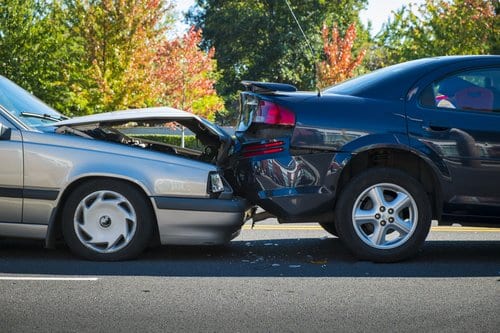The Consequences of Rear End Collisions
Distracted driving is growing problem in Michigan, the United States, and quite possible the world. With increased technology and applications on mobile devices, people are growing more and more addicted to their cell phones. This leads to increases in distracted driving throughout the state of Michigan. One common result of distracted driving is rear end collisions.
Rear end collisions have some severe legal representations in Michigan. In particular, it can lead to a very easy liability argument if you are the victim of a rear end collision. Section 257.402(a) of the Michigan Vehicle Code, states as follows:
“In any action, in any court in this state when it is shown by competent evidence, that a vehicle traveling in a certain direction, overtook and struck the rear end of another vehicle proceeding in the same direction, or lawfully standing upon any highway within this state, the driver or operator of such first mentioned vehicle shall be deemed prima facie guilty of negligence. This section shall apply, in appropriate cases, to the owner of such first mentioned vehicle and to the employer of its driver or operator.”
As you can see, a vehicle that rear ends another is determined to be prima facie guilty of negligence. This is regardless of the claim that the car in front stopped too fast. Once a vehicle rear ends another they will likely be determined negligent.
As with many rules, there are a few exceptions. First, Section 257.402(b) of the Michigan Vehicle Code, states as follows:
“This section may not be invoked by the owner of any vehicle, the rear of which was struck under the circumstances above mentioned, if the accident occurred between 1 hour after sunset and 1 hour before sunrise, and the vehicle so struck did not, at the time, have a lighted lamp or lantern reasonably visible to the drivers of vehicles approaching from the rear.”
To summarize, the above exception states that if the rear end of your vehicle does not have lights on between one hour after sunset and one hour before sunrise, you cannot claim that the rear ended vehicle is prima facie negligent. Other common defenses to this statute in a third party case include sudden emergencies. Common examples of sudden emergencies may be an unforeseen illness that leads to the driver’s incapacitation. As stated above, however, a vehicle suddenly braking in front of you is not enough to establish a sudden emergency,
341




